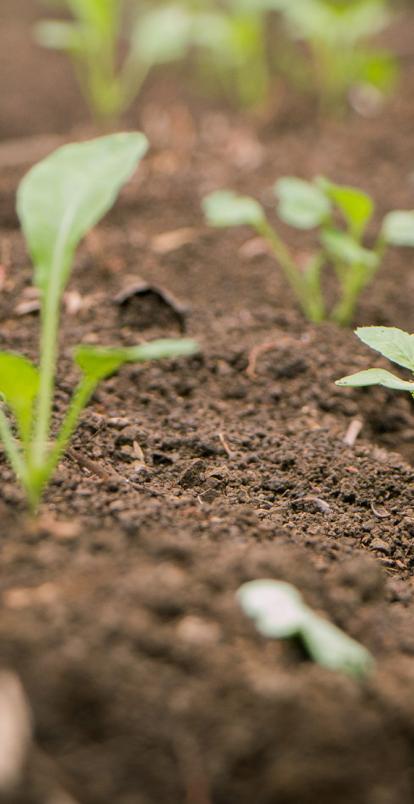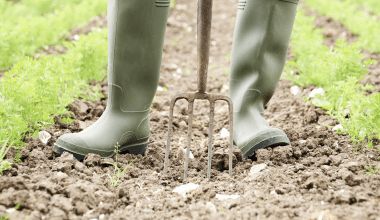The Challenge
Soils are a non-renewable resource on which 95% of our food supply depends. Short-sighted chemical fertilizer applications in industrial farming are depleting soils at an alarming rate.
Pesticide residues from agricultural intensification are also causing increasing soil contamination which is also an issue of increasing concern because of their toxicity to non-target species.
Unsustainable agricultural practices are also a major cause of desertification, a global problem directly affecting over 250 million people and a third of the earth’s land surface. It is especially concentrated in developing countries, and leads to food insecurity, climate change, poverty, and human displacement.
Soil is a rich and complex ecosystem: a teaspoon of soil usually hosts billions of microorganisms such as bacteria and fungi. Soil also harbours arthropods, earthworms and mammals. All these species contribute to keeping our soils fertile by ensuring nutrient cycling, water holding and regulation of pests and diseases.
The top 30 cm of the world’s soil contains about twice as much carbon as the entire atmosphere. After oceans, soil is the second largest natural carbon sink, surpassing forests and other vegetation in its capacity to capture carbon dioxide from air.
A third of the planet’s land is severely degraded and fertile soil is being lost at a rate of 24bn tonnes a year through intensive farming. Europe for example is losing an area the size of Berlin, at 1 meter depth, of soil every year. This is costing farmers €1.2 billion and significant areas of EU farmland are facing salinization and desertification.
A sustainable shift must be made towards sustainable land management that adopts holistic practices such as organic farming and agroecology combined with protection and restoration of natural ecosystems such as peatlands and forests. Preserving our soils is key for ensuring mitigation and adaptation in the face of the current climate crisis.
Organic agriculture sustains healthy soils by:
Improving soil fertility by maintaining and building a fertile living soil through the application of organic matter inputs in the form of green manures, compost and farmyard manure and adopting cover crops and crop rotations and intercropping and by implementing low soil disturbance tillage.
Integrating crops and animals, reducing overgrazing and facilitating nutrient recycling on the farm.
Improving water infiltration and retention capacity through high levels of organic matter and permanent soil cover, such as cover crops or mulch, which substantially reduce the amount of water needed for irrigation.
Learn how we work to maintain our soils healthy and fertile by advocating for policies supporting agricultural practices that save our soils by increasing soil biodiversity, soil organic matter and soil water conservation and preventing soil erosion.
Global Soil Partnership
IFOAM - Organics International is a member of the Global Soil Partnership (GSP) which is a mechanism to develop a strong interactive partnership and enhanced collaboration and synergy of efforts between all stakeholders. From land users through to policy makers, one of the key objectives of the GSP is to improve the governance and promote sustainable management of soils.
4 per 1000 Initiative
IFOAM - Organics International is a consortium member of the 4 per 1000 Initiative, aiming at demonstrating that agriculture, and in particular agricultural soils can play a crucial role where food security and climate change are concerned. The ambition of the initiative is to encourage stakeholders to transition towards a productive, highly resilient agriculture, based on the appropriate management of lands and soils, creating jobs and incomes hence ensuring sustainable development.







